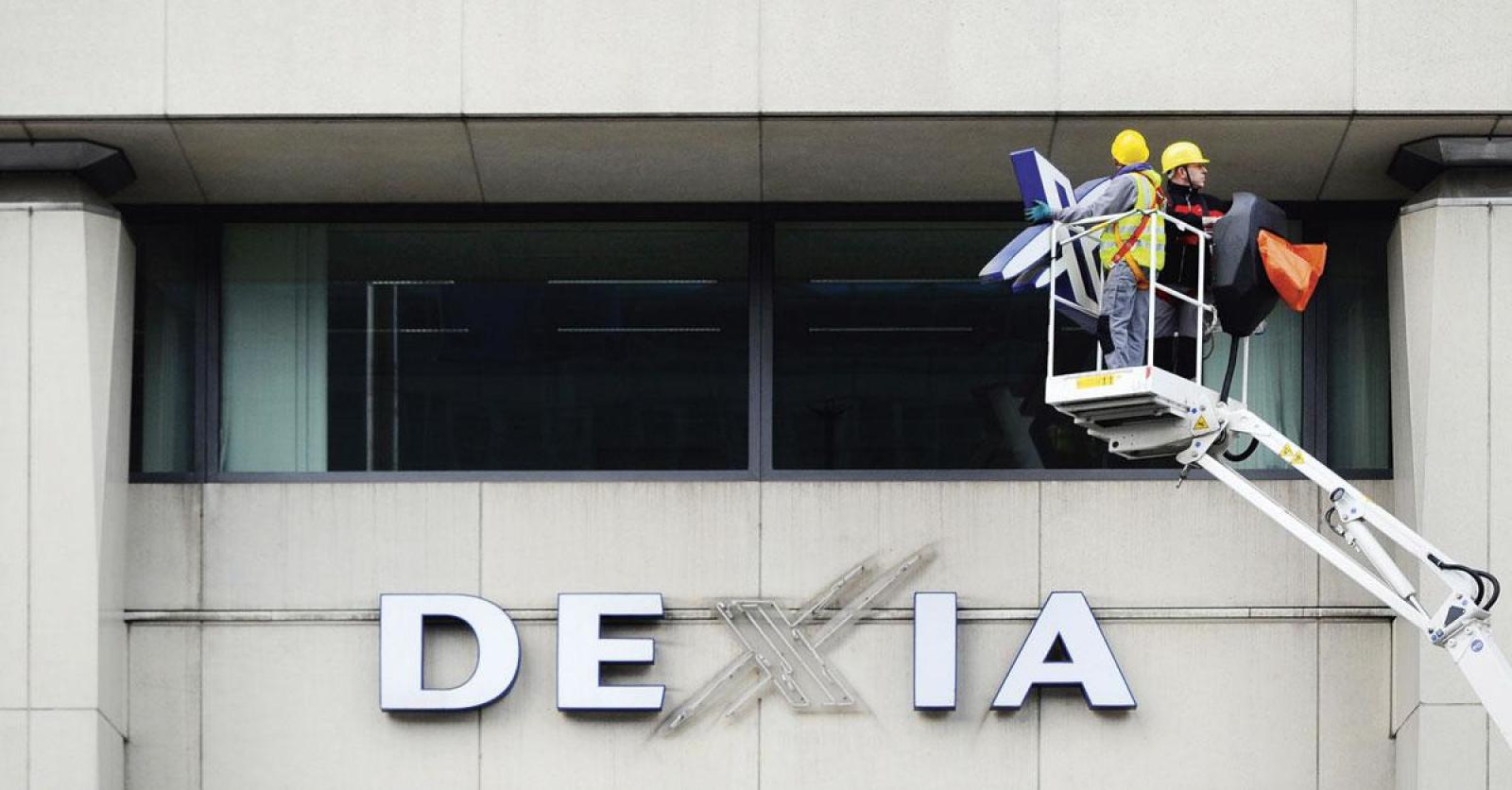Dexia intends to relinquish its banking license. With this, the remaining bank wants to save costs. The other side of the coin is that the Belgian national debt threatens to skyrocket.
In a press release, Dexia said Monday evening that the remaining bank wants to relinquish its banking license at the beginning of 2024. This puts the institution in one of the final stages of being dismantled. Dexia was transformed in 2011 into “Bath seatWho was to manage the wallet of the flip bank as best as possible. The balance sheet, which once exceeded 650 billion euros, was reduced to 64 billion euros at the end of last year. The portfolio of commercial assets decreased in ten years from 234 billion euros to 33 billion euros. The bank benefited from rising interest rates over the past two years, and as a result needed less cash as collateral for interest rate swaps.
Dexia’s choice to give up its banking license has its advantages and disadvantages.
Advantages
1. Without a banking license, Dexia no longer has to fulfill a number of obligations that cost the bank money. It is primarily about confirmed payment bank taxes. In the press release, Dexia gives the example of the 65 million euros that its French subsidiary Dexia Crédit Domestic, the entity holding the banking license, had to pay in 2022 as a contribution to the European Settlement Fund. This contribution is absurd because Dexia itself is an institution subject to the decision, and cannot rely on the resources of this fund.
2. But there are still costs that will disappear. The regulators ask the banks Extensive reports about their activities and risks. Quite a few of Dexia’s 500 employees work on this. If this organizational workload were to disappear, Dexia would be able to downsize and streamline its organization, which would lead to significant savings.
3. Finally, Dexia no longer has to comply strictly Solvency and liquidity requirements applicable to banking institutions. This could give the bank more freedom to manage portfolios. Until now, Dexia has always had to ensure that losses are limited so that capital reserves do not fall below regulatory minimums.
Negatives
1. With its banking license, Dexia had access to the Eurosystem of central banks liquidity lines It can provide it if the banks run into problems. In practice, Dexia has not taken advantage of this benefit since the end of 2021. In addition, Dexia has accelerated the reduction of its balance sheet in recent years, which has reduced the need for liquidity. However, the institution will create a new liquidity barrier to replace the emergency line of central banks.
2. Obtaining a banking license Supervisor. This gives investors who buy debt securities from Dexia stability and confidence. Dexia is funded in the markets thanks to a guarantee from the Belgian and French states amounting to a maximum of 75 billion euros. To compensate for the loss of oversight, Dexia confirms that an independent oversight committee will be formed by the Belgian and French states. This will consist of members with experience in banking supervision. According to the press release, the decision will continue to be structured with attention to risk and to ensure sufficient adequate capital reserves from early 2024 as a non-banking entity.
3. By giving up the banking license, the parent company Dexia SA will no longer have the status of a financial company. This could lead to Europe seeing Dexia as a state holding company, which means that Dexia’s debts must be added to the debts of its shareholders, the French and Belgian state.
For the Belgian state, which already has a massive rise debt ratio Not a pleasant prospect. A few tens of billions more in additional debt quickly translates into a few percentage points more debt than GDP. The decision on this matter falls in the camp of Eurostat, the European statistical office.
Read also:

“Total coffee specialist. Hardcore reader. Incurable music scholar. Web guru. Freelance troublemaker. Problem solver. Travel trailblazer.”







More Stories
Bitcoin price rises after new jobs data from US
European stock markets open higher | beursduivel.be
Russia’s oil imports to China decline